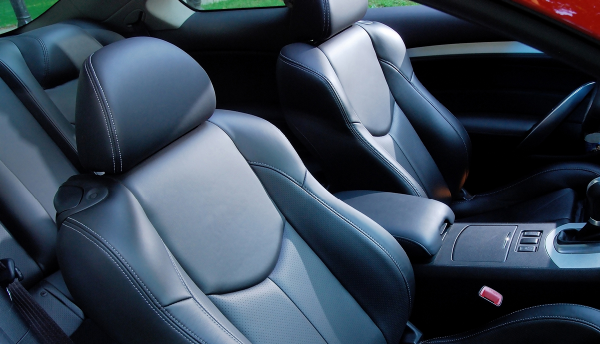
Passenger car makers in India are currently not legally mandated to have their vehicles crash tested or equip them with basic safety features such as airbags or ABS, but this could soon change. Last week, India's road transport and highways minister Pon Radhakrishnan said that the government was set to mandate crash test norms for passenger cars. According to him, the requisite test facilities are being built and the regulations will be implemented once these facilities are ready. With one of the highest traffic fatality rates in the world, the current safety norms for passenger cars in India amount to a ‘hill of beans’. At this point though, there is no specific launch date for these regulations.
India’s roads have a high-fatality rate thanks to the mix of high and low speed vehicles, as well as a low standard of safety system implementation on vehicles. According to India’s National Crime Records Bureau, in 2012, cars accounted for 10.1% and buses accounted for 9.4% of accidental deaths. The World Health Organisation also estimates that nearly a quarter of a million people are killed in road accidents in India every year, with half of all deaths being accounted for by motorcyclists, pedestrians and cyclists.
The roadmap
Earlier in November this year, reports emerged that the Indian government was planning to implement a new car assessment programme – tentatively called the Bharat New Vehicle Safety Assessment Programme (BNVSAP) – in a phased manner, starting in 2015. According to the report, 'Phase 0', which starts in March 2015, will focus on commencing crash test facilities in Indian cities such as Pune, Manesar Chennai. During this phase vehicles will be rated on the basis of their performance in frontal offset, side impact, pedestrian protection and child safety tests. In 'Phase 1', which starts in October 2016, carmakers will have the liberty to choose which cars should be assessed. However, in October 2017, when new car assessment will become mandatory, vehicles will be tested as per the United Nation’s Vehicle Safety Regulations frontal crash 56km/h. In Phase 2, which starts in October 2020, tests will be done at 64km/h, in line with UK-based Global NCAP’s methodology. Phase 2 will also see the introduction of a rear impact test (at 35km/h), a full frontal test (at 50kph), and also a proposed test for whiplash. Finally, Phase 3, which starts in October 2022, will be based on the accident test data. The collection of such data has started this year, Autocar Professional reported.
Wake-up call
The announcement by the minister last week followed developments in November this year when many vehicles which were manufactured in India failed crash tests by Global NCAP. Maruti Suzuki's Swift received zero stars for adult occupant protection and one star for child occupant protection, while Nissan's Dastun Go scored zero stars for adult occupant protection and two stars for child occupant protection. Earlier in 2013, five made in India cars – Maruti Suzuki Alto 800, Hyundai i10, Ford Figo, Volkswagen (VW) Polo, and Tata Nano – received zero stars for adult protection from Global NCAP.
According to media reports, India's automakers' association SIAM has agreed to the norms and will work with the government to generate a consensus on the issue. Commenting on Swift’s Global NCAP rating in crash test last month, R S Kalsi, executive director, Maruti Suzuki India, was quoted as saying, “The crash test was carried out as per the international standards, while we follow safety norms laid out in India. We are meeting all the requirements related to car safety in India. However, we are also willing to change if the government asks us to do so.”
Opportunity for suppliers
The new safety regulation, once implemented, may require all passenger cars to come factory-equipped with basic safety features as airbags, anti-lock braking system (ABS) and seat belt reminder, electronic stability control (ESC). Automakers in India have so far avoided use of these features to keep prices low. A senior executive at Maruti Suzuki was quoted as saying in Business Standard, "We do offer airbags and enhanced safety features such as ABS in top-end variants. Customers can opt for them according to affordability. If such features are made mandatory across all variants and all models, it will result in increasing the price of vehicles and affect sales, especially at the entry level." Though it is difficult to predict now if demand for passenger cars will fall after implementation of new vehicle safety norms, the move will certainly make India a big market for suppliers of vehicle safety parts and technologies.








